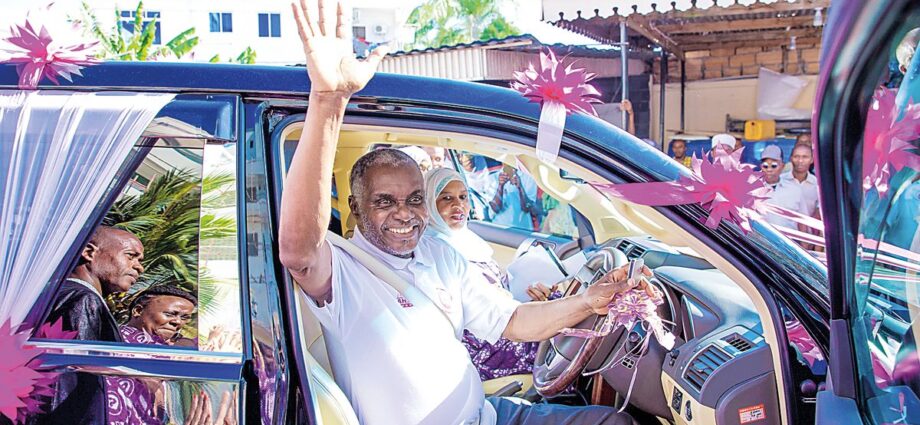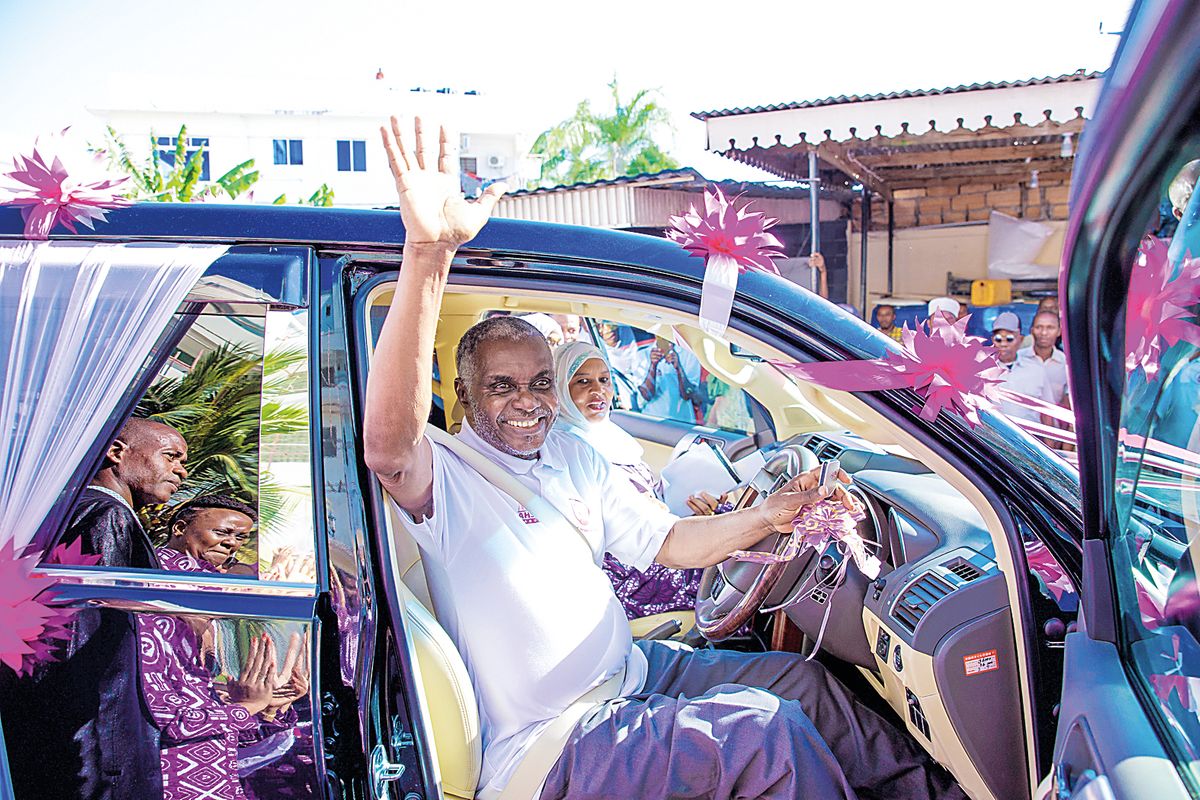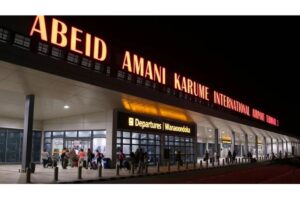Unguja. In the annals of Zanzibar’s political history, Mr Juma Haji Duni, also known as Babu Duni, stands out as a towering figure in Zanzibar’s political history. At 73, his journey through the turbulent landscapes of opposition politics has left an indelible mark on the country.
On Wednesday, September 4, the ACT Wazalendo party honoured him with a special ceremony at a hall in Kiembesamaki, reflecting on his extraordinary political career marked by formidable challenges and significant achievements.
The event was attended by key party figures, including Chairman and First Vice President of Zanzibar Othman Masoud, party leader Dorothy Semu, retired party leader Zitto Kabwe, and Secretary-General Ado Shaibu, among others.
This ceremony is part of ACT Wazalendo’s new policy to honour retired leaders who have served the party with respect, diligence, and integrity.
Mr Juma Haji Duni’s political career began in the thick of Zanzibar’s struggle for democratic reforms during the early 1990s.
Despite numerous hurdles, including party rifts and internal conflicts, Mr Duni’s strategic acumen and steadfast commitment helped navigate the tumultuous waters of Zanzibar politics.
In March of this year, Mr Duni’s leadership was tested when he faced a challenging election for the chairmanship of ACT Wazalendo.
The contest was not only a test of political skill but also of his dedication to the party’s unity. Despite significant pressure and internal disputes, Mr Duni’s decision to withdraw from the race and support Othman Masoud demonstrated his commitment to the party’s stability and growth.
His selflessness in stepping aside allowed the party to avoid a potential split and showed his deep-rooted belief in institutional resilience.
In his farewell address, Mr Duni expressed great pride in seeing the party continue after the death of Maalim Seif Sharif Hamad.
His association with Seif, a revered leader in Zanzibar, was pivotal in shaping his political trajectory. Throughout their collaboration, Mr Duni showed unwavering support for Seif’s vision while also forging his path.
Together, they faced numerous challenges, including political opposition and internal party conflicts, with a shared commitment to advancing their cause.
“After Maalim Seif’s death, the party was crossing a very difficult bridge,Mr Duni recalled. “At that time, I was the Vice Chairman. We questioned who would take over, and many believed the party might not survive without Seif. I worked with my colleagues, and we successfully crossed that bridge. We found a First Vice President, Alhamdulillah, and we moved forward. Then came the second bridge—choosing a chairman. The challenge was evident, but with God’s blessing and the wisdom of my fellow leaders, we navigated it.”
Mr Duni continued: “When it came to contending for the chairmanship again, the situation was tough. There were two sides. By God’s will and the wisdom of my fellow leaders, I stayed in line until the general election, and today we have new leaders and a strong front.” Mr Duni’s political career was not without personal sacrifice. His support for Maalim Seif resulted in significant personal and professional repercussions, including demotion, dismissal, and imprisonment. These setbacks extended to his family as well.
Mr Duni recounted a poignant moment: “I saw my father being slapped by FFU officers when he went to request permission to greet me while we were at court. He was pushed and slapped mercilessly and fell. We did not meet again until he died, and he was buried without my presence.”
Yet, these experiences only seemed to strengthen Duni’s resolve and deepen his understanding of governance and politics.
His contributions to Zanzibar’s political landscape are numerous. His leadership in ACT Wazalendo, his role in advocating for democratic reforms, and his efforts in party building have left a lasting impact.
Duni’s reflections on development and governance reveal a deep understanding of people-centred progress. He emphasised that true development goes beyond mere infrastructure and involves uplifting the lives of the people.
“There is a misconception about development. Mwalimu Nyerere once said, and I agree, that ‘Development is the development of people, not the development of things—people-centred development,’” Mr Duni stated.
He added, “It is surprising that many CCM members fail to understand this. They believe that building roads, schools, and markets constitutes development. This has led to divisions, discrimination, and animosity among us.”
As the party’s leadership presented Mr Duni with the keys to a Toyota Prado and health insurance, it was clear that his legacy as one of Zanzibar’s most revered politicians is firmly established.
As Mr Duni steps away from the political limelight, his contributions and principles will continue to inspire and guide future leaders.















